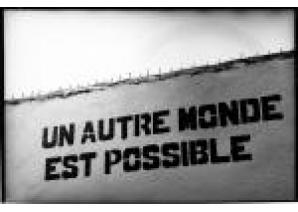Anger and discontent against the ruling Conservative government is on the rise all across Canada. Human rights groups, women’s organizations, cultural associations, environment groups, labour, indigenous peoples, students, generally civil society organizations feel threatened and angered by the government’s policies and actions.
Protests for social and environmental justice are erupting all over the country. Casseroles have been organized on the streets of many cities in support of the student movement in Quebec. The youth across Canada are joining hands with those from Quebec in challenging neo-liberal austerity policies.
Indigenous communities are also fighting against the government to preserve their culture and defend their lands from predatory mining and oil corporations. There are many campaigns, gatherings and protests planned for the months to come.
Yet our movements continue to be fragmented and ghettoized. We must work together and create a space for all these voices of dissent and strategize together our progressive agenda to help build links and solidarity across movements and issues.
A grassroots approach to a Canada-Québec-Indigenous Peoples’ Social Forum
The grassroots horizontal approach was taken while organizing a Social Forum across Canada as a means of stimulating debate, discussion and furthering our sense of community and collective action. The process of the social forum seeks to reach out to a plurality of social movements, groups and progressive institutions across Canada, Québec and Indigenous communities. The short term goal being to build on existing struggles by building a united and cohesive front against the Conservative agenda of austerity and privatization but long-term to help transform the current political, economic and social paradigm, by employing creative resistance while proposing alternatives solutions.
So far, several organizations and individuals have come together to form Expansion Commissions in Montreal, Ottawa and Toronto. Discussions are going on to form similar commissions in Vancouver, Calgary, St. John’s, etc. The Expansion Commissions will focus on involving as many other organizations and individuals in the process.
There is a proposal that these Commissions call for a General Assembly later this fall or in early winter to launch the Peoples’ Social Forum. This general assembly will take the decisions on the name, final dates and places as well as the process leading to the forum, and its final format.
These are the organizations that have already joined the discussions: Alternatives; Canadian Union of Postal Workers; Centrale des syndicats du Québec (CSQ); Centre d’écologie urbaine de Montréal; Chantier de l’économie sociale; Coalition Against Israeli Apartheid (CAIA), Toronto; Communications, Energy and Paperworkers Union; Common Frontiers; Confédération des syndicats nationaux (CSN); Conseil Central Montréal métropolitain (CCMM-CSN); Conseil québécois des gais et lesbiennes; Council of Canadians; Fédération des travailleurs et travailleuses du Québec (FTQ); Fédération interprofessionnelle de la santé du Québec (FIQ); Fédération nationale des enseignants et enseignantes du Québec (FNEEQ-CSN); Front d’action populaire en réaménagement urbain; Indigenous Environmental Network; Indigenous Peoples Solidarity Movement; Institut du nouveau monde; Public Service Alliance of Canada; Quebec Native Women (FAQ-QNW); Latin American and Caribbean Solidarity Network; Occupy Toronto; Toronto Bolivia Solidarity; Toronto Stop the Cuts
What is a social forum?
The first social forum was the World Social Forum held in January 2001 in Porto Alegre, Brazil. Simply put, it was a response to the growing onslaught of the neoliberal agenda of the ruling parties in many parts of the world. It challenged the TINA syndrome as well as the right-wing theses of “the end of history” and “clash of civilizations.” It also proposed the slogan “Another World is Possible.”
The World Social Forum was intended as a regular meeting of activists to move experiences from the individual to the collective.
This forum set the trend for organizing such events on an annual basis. Until 2007 there were seven WSF in different cities of the world with an average participation of 100 000 people. From then onwards a WSF is held every two years. The next WSF-2013 will be held in Tunis.
In addition to this global event, there emerged national and regional social forums. For example “Quebec Social Forum,” “European Social Forum,” “Africa Social Forum,” “India Social Forum.” At the same time social forums were organized on thematic basis. For example, “Democracy Social Forum,” “Education Social Forum,” etc.
The WSF charter explains the social forum in the following manner:
“The World Social Forum is an open meeting place for reflective thinking, democratic debate of ideas, formulation of proposals, free exchange of experiences and interlinking for effective action, by groups and movements of civil society that are opposed to neoliberalism and to domination of the world by capital and any form of imperialism, and are committed to building a planetary society directed towards fruitful relationships among Humankind and between it and the Earth…
The alternatives proposed at the World Social Forum stand in opposition to a process of globalization commanded by the large multinational corporations and by the governments and international institutions at the service of those corporations’ interests, with the complicity of national governments. They are designed to ensure that globalization in solidarity will prevail as a new stage in world history. This will respect universal human rights, and those of all citizens — men and women — of all nations and the environment and will rest on democratic international systems and institutions at the service of social justice, equality and the sovereignty of peoples.
The World Social Forum is a plural, diversified, non-confessional, non-governmental and non-party context that, in a decentralized fashion, interrelates organizations and movements engaged in concrete action at levels from the local to the international to build another world.”
The World Social Forum Charter of Principles was approved and adopted in São Paulo, on April 9, 2001, by the organizations that make up the World Social Forum Organizing Committee.
Raul Burbano is an activist with Common Frontiers, and Roger Rashi is a member of Alternatives.



